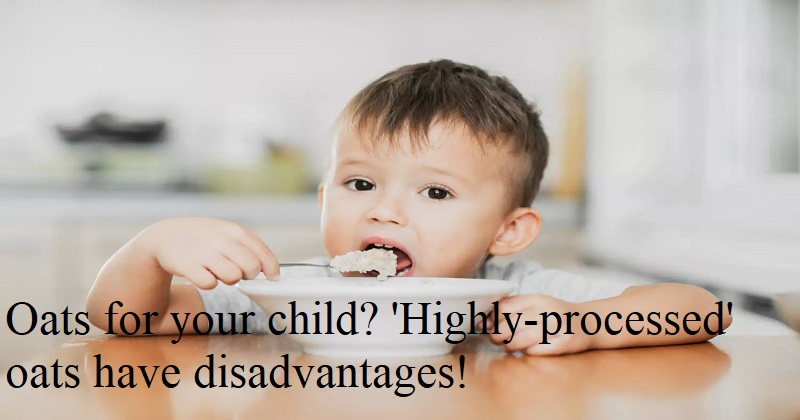
Oatmeal is one of many nutritious foods that has been proven to be useful and is essential to a healthy diet. Why not, then? Oats are a gluten-free grain that are also high in beta-glucan fibre, antioxidants, carbs, and proteins. It is not uncommon for parents to serve oatmeal to their kids, given how oats have grown to be a trend among health-conscious people. What if, however, we told you that oats might be be harming your children’s diet by serving as a supplement to it? And while oats typically play a positive function in an adult’s health, the same cannot be stated for your child’s health.
As a result, Dr. Priyanka Jaiswal, co-founder and chief dietician at Diet2Nourish, elaborates on the drawbacks of including oats in your toddler’s diet in an interview with indianexpress.com. She emphasises the importance of resuming the traditional baby eating practises made by the older generation, calling it a ‘commercial gimmick’.
‘Toddlers need a diet that is packed with nutrient-dense meals since they are at a stage of development when their growth is happening so quickly. Instead of the fibre and antioxidants that oats are high in, they require a diet that gives them a sufficient quantity of energy and food’, according to Dr. Jaiswal.
She explains, ‘Fiber is essential for a specific reason. It is suggested that oats not be included to a child’s diet until at least the age of five (only if required). The main time oats can assist with constipation is when it occurs. If a child is obese or has mobility issues, I advise parents to give them oats. However, I never advise giving oats to a healthy, normally functioning child’. Jaiswal gave the following responses when asked how oats affect a child’s health:
Every diet is customised based on a child’s needs. In a similar vein, oats are introduced to the diet of the child who genuinely needs them. Oats have a fundamental impact on the child’s natural growth. In comparison to other necessary foods, oats have less protein. In addition, oats are quite taxing on the digestive system, so if you give them to your child, it will take a while for them to digest. As a result, the child won’t experience hunger as soon as they should and may skip their next meal.
In addition, Dr. Jaiswal emphasises how processed oats are. ‘ Grains like oats take a long time to cook. They are difficult to cook. Therefore, all of these ‘one-minute oatmeal’ marketing gimmicks merely disclose how processed they are, which is obviously not acceptable for children to eat. It simply indicates that you are giving your infant overly processed food’.
Considering how drinking oats has become regular practise, especially for today’s children, we ask Dr. Jaiswal what prompted this trend. ‘ I think that promoting oats is just a marketing ploy. Because children and toddlers are significant consumers of oat products, these companies intended to broaden their target market’.
‘There are a number of healthy alternatives to oats, like sago (saboodana), green vegetables, and seasonal fruits, which actually include a significant quantity of the vitamins, minerals, and other nourishing components that a youngster requires. We need to return to our prehistoric roots rather than succumbing to these commercial gimmicks and the culture of the West. Indian eating patterns are effective and incredibly nourishing for a developing child’, she says.

Post Your Comments